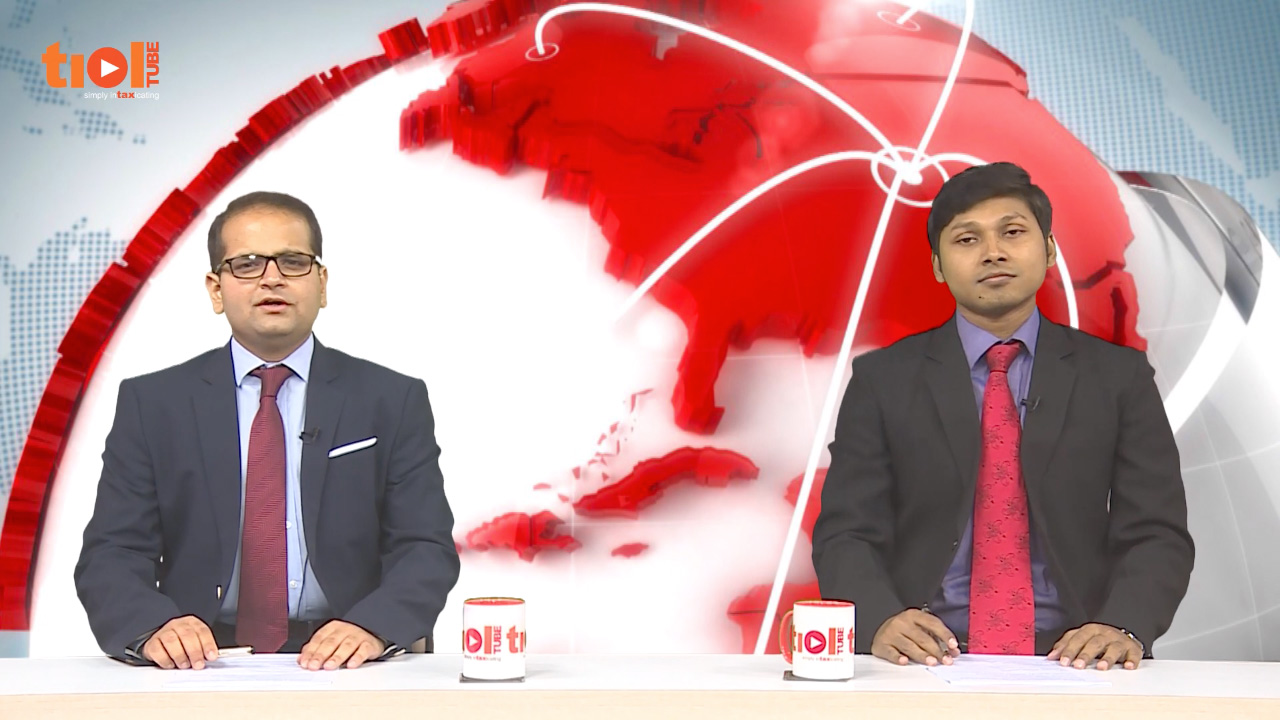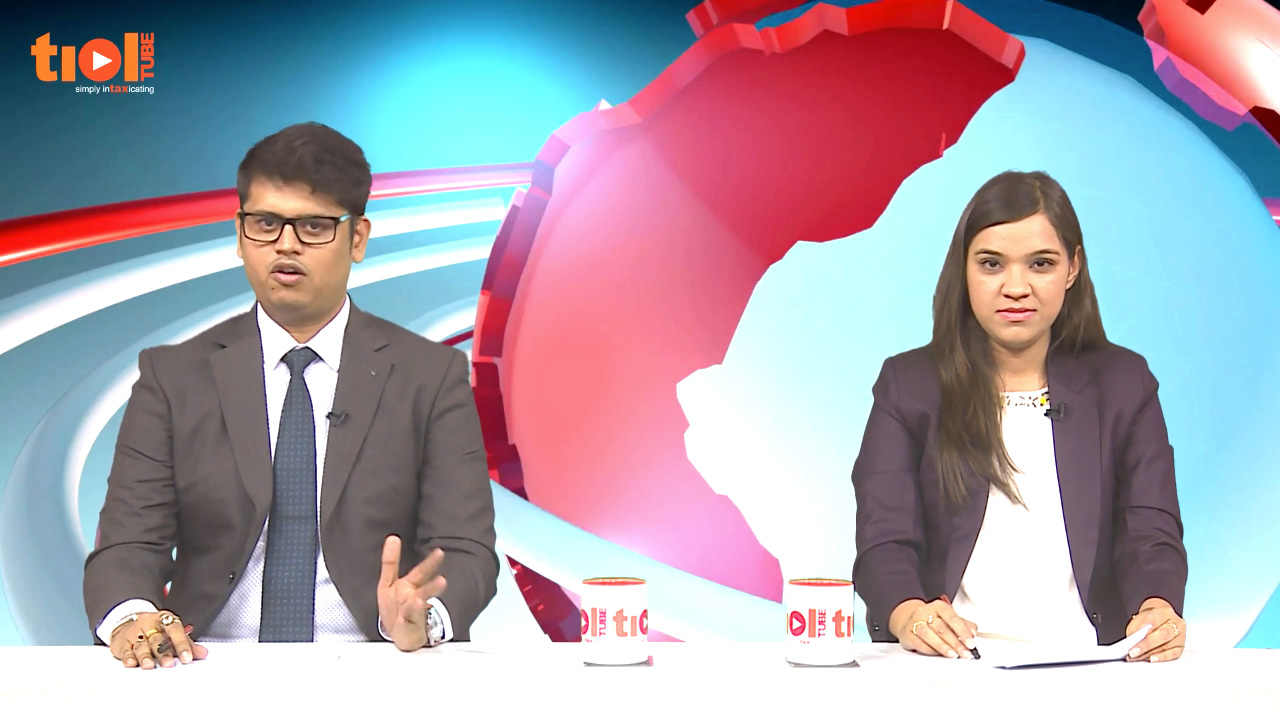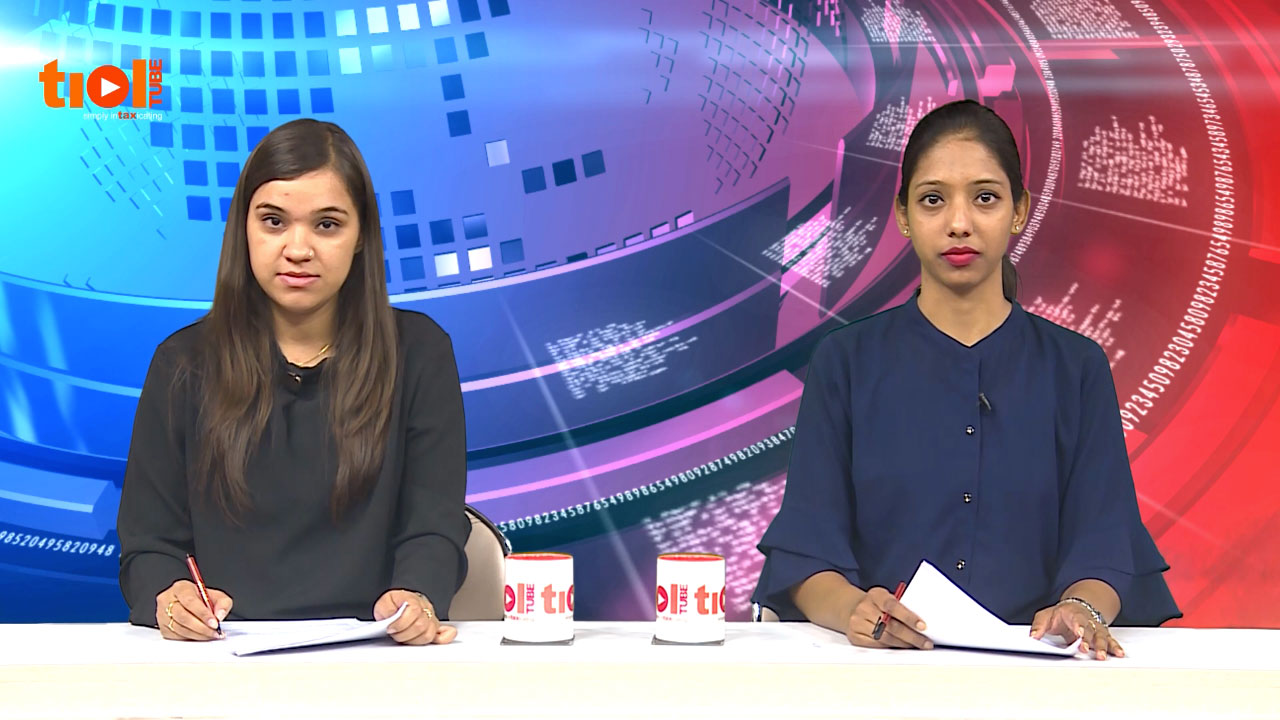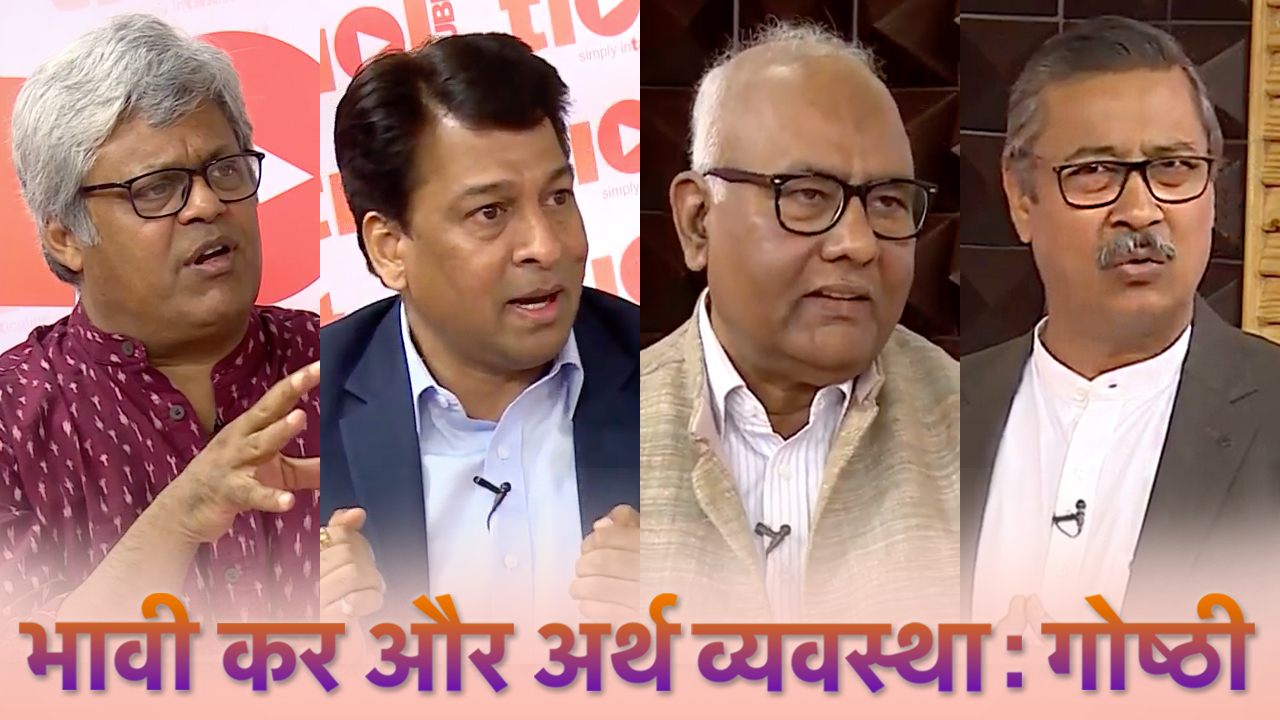|
SERVICE TAX
2019-TIOL-1482-CESTAT-MAD
Goldline Hospitality Solutions Pvt Ltd Vs CGST & CE
ST - Outdoor Catering Services - In respect of invoices where the bill amount shows the cost of the item and service charges separately, appellant had paid service tax only on the service charges collected by availing the benefit of Notification No. 12/2003-ST and where the bill showed the total cost, appellants had paid service tax on 50% of the cost by availing the benefit of Notification No. 01/2006-ST - Revenue of the view that supply of food is essential in rendering Outdoor Catering Service and is inseparable; hence, the benefit of Notification No. 12/2003-ST will not be applicable.
Held: Karnataka High Court in the case of Sky Gourmet Catering Pvt. Ltd. has held that Outdoor Catering is a composite but divisible contract of service under Article 366(29)(a)(f) of the Constitution of India; hence, sale of goods has to be bifurcated from service provided - that service tax is payable on service aspect and sales tax is payable on deemed sales aspect and it is not an indivisible contract - demand set aside: CESTAT [para 7.1, 7.2]
ST - Appellants had also received commission, consultancy fees and housekeeping and pantry management charges - Department took the view that these charges collected are relatable to Outdoor Catering Service; however, since no food is provided in respect of these services, the taxable amount received would not qualify for abatement as provided in Notification No. 01/2006-ST and, therefore, the entire amount is liable to service tax.
Held: Even before adjudication, appellants had informed the Department that "consultancy fee” is the amount received for demonstration of international cuisine to the customers; that “commission” is the incentive received from M/s. Fresh & Honest for the facility provided to them at their sales counter; that “housekeeping and pantry management charges” are charges received for the maintenance of the canteen and pantry premises; that based on the bills raised on the customers, they are collecting and paying service tax on these charges; that they have paid the service tax on the amount collected under housekeeping and pantry management charges under Outdoor Caterer Service on which no abatement claimed - aforesaid clarifications of appellant have also not been addressed or rebutted by the adjudicating authority - demand with interest and penalty also does not have any basis to sustain, hence set aside: CESTAT [para 8.1, 8.2]
- Appeal allowed: CHENNAI CESTAT
2019-TIOL-1481-CESTAT-MAD
Golden Preethi Property Developers Vs CCE
ST - Demand of service tax under Construction of Residential Complex Service - Period 16.6.2005 to 31.3.2009 - For the period prior to 1.6.2007, demand cannot sustain in view of apex court decision in Larsen & Toubro Ltd. 2015-TIOL-187-SC-ST holding that the contracts are composite in nature involving both supply of
materials as well as rendition of service and, therefore, the demand cannot sustain under construction of residential complex service - even after 1.6.2007, service tax on such composite contracts would not be sustainable under Residential Complex Services or Commercial or Industrial Construction Services as held in the case of Real Value Promoters Pvt. Ltd. 2018-TIOL-2867-CESTAT - demand set aside : CESTAT [para 5]
ST - Appellant has collected a lumpsum amount which forms a corpus and is transferred to the flat owners association - Apart from this, the appellant has collected maintenance charges at Rs.1.25 per square feet - said amount would definitely be subject to levy of service tax if it has not formed a part of corpus that has been transferred to the association - However, this fact whether corpus was transferred to association and how much was collected by appellant for Management, Maintenance and repair service is not forthcoming - For this reason, the matter requires to be remanded to the adjudicating authority: CESTAT [para 5.1]
- Appeal partly allowed/partly remanded: CHENNAI CESTAT
2019-TIOL-1475-CESTAT-DEL
Travel Corporation India Ltd Vs CGST, CC & CE
ST - The assessee has preferred impugned appeal against O-I-A vide which the appeal of assessee against O-I-O was dismissed on the ground of limitation as the appeal was preferred beyond 7 years - The entire case of assessee rests on a ground that the change of address of assessee was communicated by assessee to the Department on 15.11.2010 by way of updating the same in Form ST-1 - Despite that the O-I-O was been sent by Department to the old address itself - Hence, there was no occasion with assessee to be aware about the said O-I-O - It is impressed upon that it is only after the recovery proceedings initiated that the O-I-O came to the notice of assessee and the appeal was preferred before Commissioner (A) - It is clear beyond doubts that the assessee has been highly negligent about the status of investigation based whereupon the impugned SCN was issued - Rather assessee has nowhere denied receiving the SCN - Even presuming that even SCN was not received by assessee, still there is no reasonable explanation as to why the address which got changed in year 2007 was not brought to the notice of department till the year 2010 that too only by way of ST-1 Return - The otherwise apparent fact is that the impugned order was dispatched to assessee through the valid mode, as provided in law, and the same has never been returned to the Department - It is assessee's own admission during arguments that the purchase of his previous premises, Mr. Anand had handed over the envelope containing O-I-O - It cannot be presumed nor the assessee was supposed to wait for as long period as that of 7 years for the outcome of the adjudication, which initiated way back in the year 2007 - Also assessee is impressing upon the letter of recovery proceedings but has been miserably silent qua its dak and receipt thereof - Seen from any angle, the delay in the present appeal reflects the utmost negligence on part of assessee - Malafide also cannot be ruled out - Above all, the Commissioner (A) was statutorily bound to not to condone the delay beyond 90 days - Hence, there is opined no infirmity in the order under challenge - Delay of seven years is denied to be condoned: CESTAT
- Appeal dismissed: DELHI CESTAT
2019-TIOL-1474-CESTAT-ALL
Super House Ltd Vs CCE & ST
ST - The assessee is engaged in manufacture and export of footwear and parts of footwear and also registered with Service Tax department under category of "Transport of Goods by Road Services" and "BAS" - For the purposes of exports and to procure the export order, assessee has established four fully owned subsidiaries in foreign countries - The said subsidiaries of assessee are working as overseas commission agents and are procuring export orders for assessee - Inasmuch as assessee is availing the said commission agent services from the companies located outside India, they are liable to pay Service Tax in respect of commission paid to them, on reverse charge basis, in terms of Clause (iv) of Rule 2(1)(d) of STR, 1994 - However, Notfn 18/2009-ST exempts the said services used by exporters for export of their goods subject to certain conditions - The dispute relates to one of such conditions enumerated in said Notfn - Admittedly assessee has not exported the goods to its own wholly owned subsidiaries or overseas joint ventures - They had paid only commission to its foreign based commission agents, who happened to be their own subsidiary company and has not made any exports to them - The legislative intent beyond the introduction of condition is that no exporter would take undue advantage of exemption on overseas commission agents in respect of exports made by them to their own companies inasmuch as the export to their own companies would not require the services of any commission agents - The benefit of exemption Notfn 18/2009 is available to assessee and the demand of Service Tax is unsustainable - Even though, Tribunal held in favour of assessee on merits, also found favour with assessee's contention that the demand is barred by limitation inasmuch as during the period in question audits have been conducted in assessee's factory - Apart from that the issue involved is bona fide issue of interpretation, in which case no mala fide can be attributed to assessee - Further, the Revenue has not produced any evidence to show that there was any suppression or mis-statement on behalf of assessee with any mala fide intention so as to justifiably invoke the longer period of limitation: CESTAT
- Appeal allowed: ALLAHABAD CESTAT
2019-TIOL-1473-CESTAT-KOL
Bansal Cylinders and Tubes Ltd Vs CCE
ST - The appellant company entered into a contract with one M/s Skipper Steels Ltd for providing HDD machine on hire basis during April 2004 to March 2005 - The contract stipulated monthly maintainence charges which were collected by the appellant through bills raised from time to time - The Revenue issued SCNs for such period proposing to raise duty demand under Maintenance & Repairing Services u/s 65(64) of the Finance Act - On adjudication, the duty demands were sustained with demand for ED and interest - Penalties were also imposed u/s 76, 77 & 78 of the Act - On appeal, the Commr.(A) sustained the demands - Hence the present appeals.
Held - The appellant hired machines to the client for hire charges - During this period, maintenance charges for such machines were fixed & the ownership over the machines remained with the appellant - For the period in dispute, the machines were used by the client & for such use, the maintenance services were provided - Such activity falls under the scope of Maintenance & Repair Service - But since the appellant did not collect tax from its customers, the benefit of Cum tax u/s 67(2) of the Finance Act 1994 should be given to the appellant - Perusal of records also show there to be no intent to evade payment of duty or to suppress facts with intent of evading payment of service tax - Hence the provisions of Section 80 of the Act merit being invoked in order to waive off the penalties: CESTAT (Para 1,5,6)
- Assessee's appeal partly allowed: KOLKATA CESTAT
CENTRAL EXCISE
2019-TIOL-1105-HC-RAJ-CX
Sanwaria Sweets Pvt Ltd Vs UoI
CX - Court is not inclined to countenance submission that since CGST Act came into force, proceedings of search u/s 12F of CEA, 1944 could not have been carried out: HC
CX - It is trite that an error committed by Officer in seizing the documents which may ultimately be found not to be useful for or relevant to the proceeding will not by itself vitiate the search: HC
CX - Whether or not official concerned had "reason to believe" cannot be scrutinised by the Court under "legal microscope, with an over-indulgent eye which sees no evil anywhere within the range of its eyesight" : HC
- Petition dismissed
: RAJASTHAN HIGH COURT
2019-TIOL-1485-CESTAT-KOL
Haldia Petrochemicals Ltd Vs CCE
CX - Departmental Authorities took the view that the difference in price between the clearances made to buyers who surrendered Advance License and others who did not, should be considered as additional consideration flowing for the goods and in terms of Rule 6 of the Central Excise Valuation Rules, 2000, it was proposed to add the difference in price as an additional consideration - demand confirmed and penalties imposed, so appeal before CESTAT.
Held: Transferred advance licenses can be beneficially used by the appellant for duty free import of the raw materials required for the manufacture in the appellant's factory - Naturally it is obvious that certain benefit accrues to the appellant through the transferred advance licenses - From the record it is seen that the demand for differential duty has been confined to only those cases where advance licenses have been transferred in favour of the appellant though such prices have been charged from buyers who are EOUs as well as Deemed Exports, no demand for differential duty has been raised - transfer of advance import license in favour of the seller by the buyer enables the seller of the goods to effect duty free import of the raw materials and brings down the cost of production, hence, this constitutes additional monetary consideration which has to be added under the provisions of Rule 6 of the Central Excise Valuation Rules, 2000 - Even if same price is being charged for all the three categories as above, it is evident that the benefit accrues to the appellant only in cases where advance licenses are transferred in their favour - Revenue demand is justified: CESTAT [para 7 to 9]
CX - Limitation - Supreme Court decision in the case of IFGL Refractories Ltd. ( 2005-TIOL-103-SC-CX) reversed the earlier decision of the Tribunal, hence, it is to be noted that the issue was in favour of the appellant till the decision of the Supreme Court - Consequently, Bench is of the view that the appellant was entitled to a bonafide belief that such additional consideration is not required to be added - Revenue is not justified in invoking the extended period of limitation by alleging suppression of facts - demand is to be restricted to normal time limit - appeal partly allowed: CESTAT [para 10, 11]
- Appeal partly allowed: KOLKATA CESTAT
2019-TIOL-1484-CESTAT-CHD
Great India Steel Fabricators Vs CCE & ST
CX - Rule 5 of CCR, 2004 - Refund granted by lower authorities as credit in CENVAT account - On introduction of CGST, 2017, in view of section 142 of the Act, authorities are to sanction all refund claims in cash - impugned orders modified to the extent that refund claims are to be allowed in cash instead of crediting in the CENVAT account - appeals allowed: CESTAT [para 4, 5]
- Appeals allowed: CHANDIGARH CESTAT
2019-TIOL-1483-CESTAT-CHD
Hariom Forgings Pvt Ltd Vs CCE
CX - Non recording of manufacturing of dies in RG-23A Part-1 register and ER-1 returns is only procedural lapse for which the appellant can be penalized but the credit cannot be denied to the appellant when it is fact on record that the appellant has manufactured dies from inputs received by them - If these dies are not manufactured by the appellant from the inputs in question then the Revenue has failed to explain from where the appellant got inputs to manufacture to dies - benefit of doubt goes in favour of the appellant - demand of duty is set aside and no interest is payable by the appellant, however, a penalty of Rs.5000/- is imposed for procedural infraction on appellant, no penalty on Director - Appeals are disposed of: CESTAT [para 8, 9]
- Appeals disposed of: CHANDIGARH CESTAT
2019-TIOL-1472-CESTAT-HYD
CC, CE & ST Vs Select Foam Products
CX - The assessee-company manufactures Polyurethane Foam in the form of seat cushions by injecting Polyol & Isocyanide chemicals directly into moulds - Such mould meet the requirements of the customer and take the shape of a seat which is then used in cars or buses - The assessee classified such cushions meant for seats as seats uder Chapter Heading 9401 of the CETA 1985 - The Revenue opined that the assessee did not manufacture seats but only articles of Polyurethene foam which could not be used as seats unless fixed to the frame of chairs, buses & car seats - Hence such products were classifiable as articles of Foam under Chapter Heading 39263010, on account of which SSI exemption could not be availed as per Notfn No 8/2003 - The manufactured goods were seized & SCN was issued proposing to raise demand for differential duty with interest u/s 11AB and penalties u/s 11AC r/w Rule 25 of CER 2002 - A similar SCN was issued for the subsequent period - On adjudication, the demands were dropped on grounds that the goods classified as seats under Heading 9401 and not as articles of foam - Hence benefit under Notfn No 8/2003-CE was allowed - Hence the Revenue's appeal.
Held - It is not in dispute that the articles in question are made of Polyurethane & they can be used only for Seats - It is also undisputed that they are not seats by themselves but become seats when attached to the frame and covered with upholstery - Chapter note 1(d) of chapter 94 excludes articles falling under chapter 39 from this chapter - Similarly, chapter note 2(x) of chapter 39 excludes articles falling under chapter 94 - Thus, the chapter notes mutually excluding each other do not help in determining the classification - Hence Rule 3(a) of the general rules of interpretation must be applied to a more specific entry - As the article in question is one made of Polyurethane & meant specifically for fitting on furniture & is not a seat in itself, this is a more specific description of the goods - Hence the goods are correctly classifiable under Heading 3926 3010 - Hence the classification favored by the Revenue merits being upheld - Now, considering the interpretational nature of the dispute, the assessee may have been under a bona fide belief of the goods being classifiable under Heading 9401 - Hence the penalty merits being set aside - The demand & interest raised within normal period of limitation is sustained: CESTAT (Para 1,2,3,9,10)
- Revenue's appeal partly allowed: HYDERABAD CESTAT
2019-TIOL-1471-CESTAT-HYD
Sowbhagya Biotech Pvt Ltd Vs CCT
CX - The assessee-company manufactured Natural Fertilizers, Microbial based Bio-Fertilizers and were manufacturing a product called Cereal Protein Hydrolysate liquid for use in agriculture - Upon investigation by the anti-evasion wing of the jurisdictional Commissionerate, which opined that the product had to be classified under Chapter 38 - Hence demand for differential duty was raised & the same was paid with interest & penalty - The jurisdictional Commissionerate then issued a letter expressing satisfaction with the payments made and that the matter was being closed without issuing SCN u/s 11AC - The assessee later filed refund claim on grounds that the product warrants classification under CETA Heading 3101 & that such issue stood settled in the assessee's favor - The assessee also claimed that the entire duty demand with interest & penalty had been paid during investigation and so was liable to be treated as a deposit, on account of which it was liable to be refunded - On adjudication, such refund claim was denied - Such findings were confirmed by the Commr.(A) - Hence the present appeal.
Held - The applicant for refund was filed beyond the one-year period as per Section 11B of CEA 1944 - In the present case, the assessee voluntarily paid the amounts during investigation and without protest - Therefore a letter had been issued by the Department confirming the payments made by the assessee & stating that proceedings are to be concluded u/s 11AC - While the assessee claimed that the dues were paid as they were made to pay, there is no evidence to substantiate this - Duties, interest & penalties are not simply collected from an assessee but instead have to be paid - As the refund claim is filed beyond the one-year period, it is hit by time bar - The assessee pleads that limitation u/s 11B is inapplicable in cases where duty is paid despite no liability - However, it is seen that Section 11B covers precisely those cases where duty is paid in excess and then is reclaimed through refund - Accepting the assessee's contention would result in every every refund claim becoming payable - A time limit prescribed by the Parliament must be adhered to - Hence the appeal filed in this regard merits being dismissed as the refund is hit by limitation - In another appeal filed by the assessee, the refund claim was within limitation but was denied on grounds that the assessee agreed to the classification during investigation and the same could not be re-opened - There is no decision on merits - Hence the matter warrants remand to decide upon such claim: CESTAT
- Assessee's appeals partly allowed: HYDERABAD CESTAT
CUSTOMS
2019-TIOL-1470-CESTAT-HYD UNI Bourne Food Ingredients LLP Vs CCE
Cus - The issue is whether the assessee is eligible for duty free benefits under a transferable DFIA issued against Export of Biscuits as per Standard Input/output Norms (SION E-5) for the import of Wallnuts in Shell sought to be covered under the description of Food Flavour/Flavouring Agent/Flavour improvers or Dietary Fibre - The assessee has produced IIT Certificate and technical reference books and several wrappers to show that Walnuts are indeed used as relevant food flavor/flavouring agent/flavor improvers' and dietary fibre in biscuits manufacturing - The usability of Walnuts in Biscuits is beyond doubt - It is settled law that it would not be open to any one to take contrary stand, unless and until such technical opinion is displaced by specific and cogent evidence in the form of another technical opinion as held by Gujarat High Court in case of Inter Continental (India) - There is no such contrary technical opinion is produced by revenue - The Commissioner (A) himself accepts that Walnuts in shell contain dietary fibre albeit in small portion; In this regard, the ratio of judgement in the case of G.C. Jain 2011-TIOL-62-SC-CUS is relevant and squarely covered in the present case - The assessee is right in relying upon the judgement whereby the Apex Court has held that Material would mean Material required for manufacture of export products encompasses entities not only directly used/usable but also which could be used with some processing - Therefore, Walnuts can be used with some processing as a dietary fibre, flavor - As regards, the mismatching of ITC (HS) Numbers, the Tribunal in the case of USMS Saffron Co 2015-TIOL-2327-CESTAT-MUM has held that the ITC (HS) number is not a criteria for extending DFIA benefit under custom notfn 98/2009 - Neither SION nor the relevant notification specifies that relevance of ITC (HS) numbers for claiming DFIA benefits - The imported goods walnut in shell is covered under description of relevant food flavor/flavouring agent/flavor improvers' and dietary fibre as claimed by assessee - The denial of exemption is not justified - The impugned order is set aside: CESTAT
- Appeal allowed: HYDERABAD CESTAT
2019-TIOL-1469-CESTAT-MAD
Zariwala Enterprises Vs CC
Cus - The Miscellaneous Application has been filed by assessee seeking provisional release of goods that have been seized and confiscated vide impugned Order - The assessee has not opted for provisional release at the earliest opportunity i.e., during pendency of proceedings before the adjudicating authority - After passing the impugned Order and confirming the mis-declaration, mis-classification of goods and also confirmation of duty demand and imposing redemption fine, the assessee cannot at this stage request for provisional release - Further, to consider the issue of provisional release at this stage, it would be necessary to hear the arguments in detail and the decision would touch the merits of the case itself - The issue of mis- declaration and mis-classification are the main allegations in SCN - The goods are not in the nature of easily perishable goods - The assessee has waited for around two years and four months to file this application for provisional release - No genuine grounds of urgency found for release of the goods - The Miscellaneous Application for provisional release of the goods is therefore dismissed - The Miscellaneous Application for early hearing is allowed: CESTAT
- Misc application dismissed: CHENNAI CESTAT |
|









